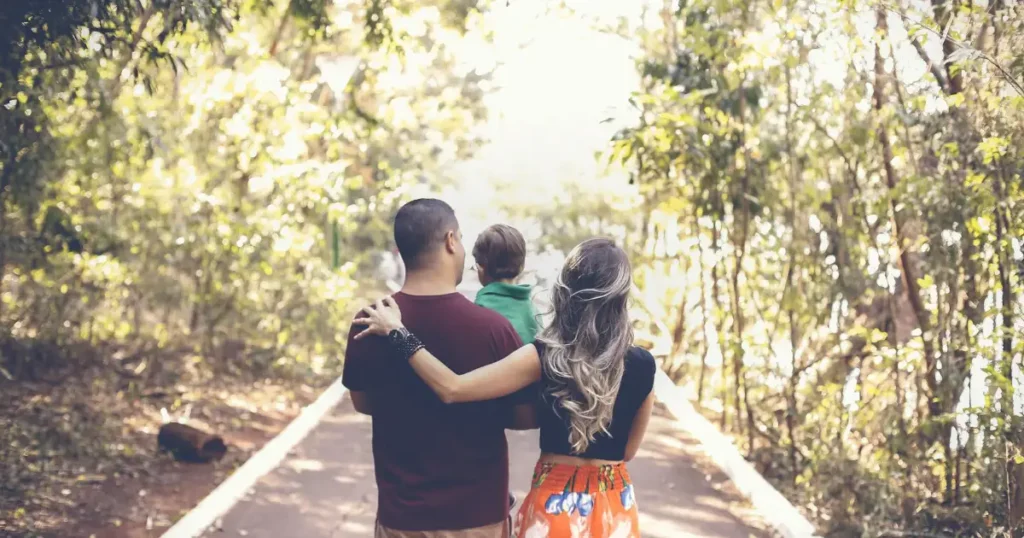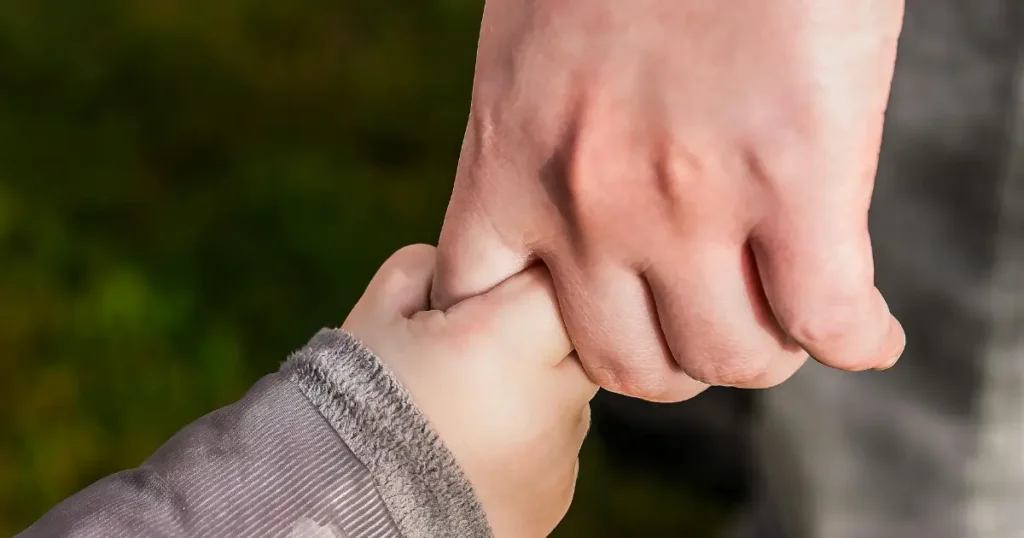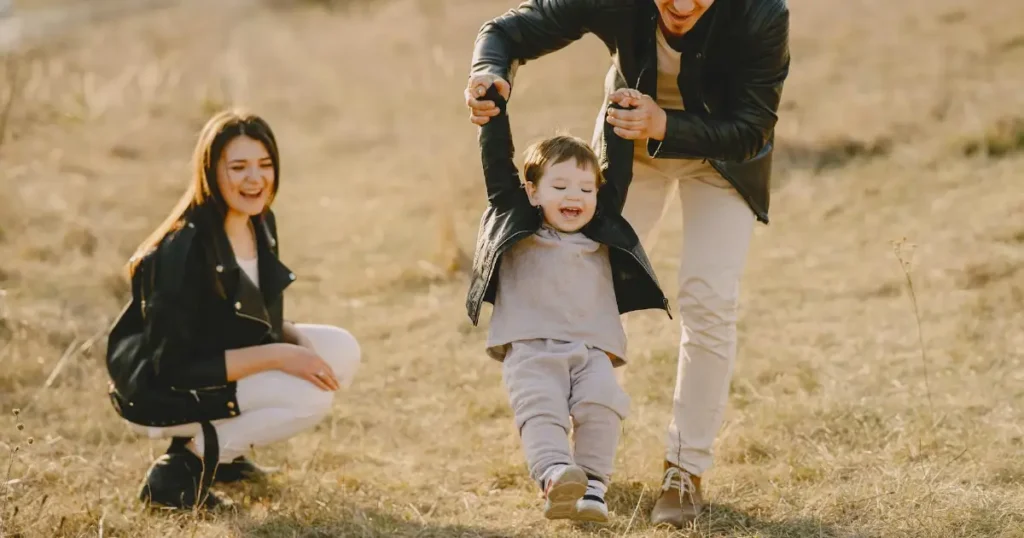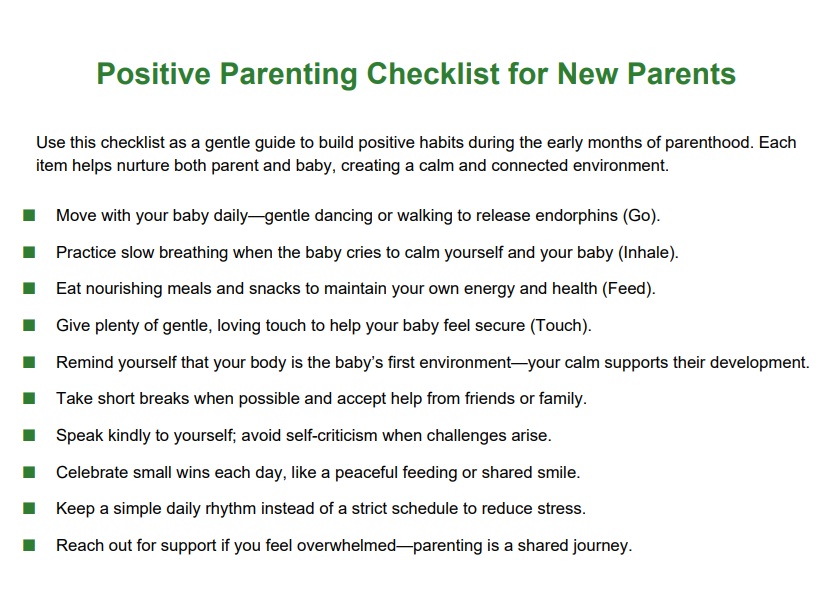Simple habits can ease the transition to parenthood. These habits focus on the parent’s well-being and connection with the baby, creating a positive environment for both.
In this article, we will share with you a quiz to test your positive parenting mood as a new parent, so do not hesitate to check this quiz down below and share your results in the comments by suggesting some of your favorite tips; maybe it can be useful to somebody here. Otherwise, let’s continue with our article…
The Transition to Parenthood
Many new parents, used to excelling in their careers, find themselves struggling with the demands of parenthood.

The Challenges Faced by New Parents
There is a lot of discussion about postpartum depression, stress, and anxiety.
In developed countries with advanced technology and medicine, the high survival rate of children raises the question of why parenthood is still so difficult.
Lack of Experience with Babies
Most people have limited experience with babies before becoming parents. Interactions are often brief and don’t involve dealing with a crying baby.
Conflict Between Adult and Baby Needs
Adults want to relax at home, while babies want to explore and move. Home is the womb, and in the womb they were doing sumers Sals and they were they they had Rippling water and so for them coming home is about movement and experimenting in the environment and getting their brains wired through this motion so we are with babies we adore.

The Fear of Making Mistakes
The more psychology is studied, the more frightening parenting becomes. People become aware of how easily they can negatively impact their children.
The Isolation and Lack of Recognition
New parents often work harder than ever before, 24/7, with no breaks or evaluations. There’s no sense of measurable achievement, as almost everything is interrupted. It is hard for career people because they’re used to studying something knowing how to do it and feeling their accomplishments and here there’s nothing to measure.
The Nonverbal Nature of Babies
Babies are nonverbal. When with nonverbal creatures, people tend to talk to themselves. Negative thoughts can creep in, leading to feelings of inadequacy.

The GIFT Acronym: A Practical Approach
The acronym GIFT can help new parents focus on their own well-being while caring for their baby.
Go: Movement and Endorphins
When the baby cries, start moving. Dance with the baby to release endorphins and feel happier. A baby’s brain architecture depends on movement.
Inhale: Calming the Body
If the baby is stressed and crying, inhale and exhale to calm the body. The parent is the nest in which the baby’s roots are being created.

Feed: Nourishment for Both Baby and Parent
Babies need to eat often because their tummies are small. Parents also need to feed themselves nutritious food. Nutritious food is needed to sustain them through the first few months.
Touch: Connection and Development
Touch the baby a lot to teach them about their bodies and their place in the world. Touching the baby will also increase oxytocin levels and increase feelings of love.
Positive Parenting Checklist for New Parents
A quick, printable guide to help you stay calm, connected, and confident:
- Care for yourself so you can care for your baby
- Build daily bonding moments through touch and eye contact
- Create a soothing, loving home environment
- Follow simple habits that support healthy development
Download the checklist below and use it as a daily reminder for nurturing both parent and child.
Conclusion: The Parent’s Body as the Baby’s Foundation
To sum it all up, new parents need to know that their bodies are the nests in which their baby’s brains get wired and in which their bodies develop. Our bodies are their interactive Bridge into the environment into their exploration of the world and through our bodies Our babies learn about their own until they can ultimately crawl away walk away and fly away.
